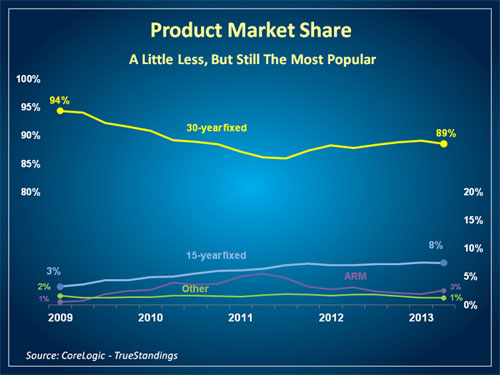
Mortgages and home equity loans are two different types of loans you can take out on your home. A first mortgage is the original loan that you take out to purchase your home. You may choose to take out a second mortgage in order to cover a part of buying your home or refinance to cash out some of the equity of your home. It is important to understand the differences between a mortgage and a home equity loan before you decide which loan you should use. In the past both types of loans had the same tax benefit, however the 2018 tax law no longer allows homeowners to deduct interest paid on HELOCs or home equity loans unless the debt is obtained to build or substantially improve the homeowner's dwelling. Interest on up to $100,000 of debt which substantially improves the dwelling is tax deductible. First mortgages and mortgage refinance loans remain tax deductible up to a limit of $750,000.
Fixed rates and adjustable rates are the most common types of mortgages. Over 90% of US mortgages are fixed rate loans. A second mortgage works the same as a first mortgage, allowing a borrower to take out a lump sum of money and then make monthly payments to pay it back. You can use the second mortgage to make repairs on your house, to consolidate your bills, or to help with the down payment on the first mortgage to avoid needing to pay PMI.


Quickly Compare Home Loan Scenarios
Use our free online calculators to compare loans of different term lengths, compare a piggyback second mortgage to paying PMI, or compare fixed, adjustable & interest-only mortgages side-by-side.
The major downside of taking out a mortgage is that it does put your home at risk if you fail to make payments. You may want to look into other options if you want to consolidate your debt. Some people choose to refinance their original mortgage to cash out their equity and to avoid two mortgage payments. When they refinance, they cash out the equity or take out more than they still owe on the loan. Like a traditional mortgage, refinancing has set monthly payments and a term that shows when you will have the loan paid off.
Here is a table of local mortgage rates in your area.
Home equity lines of credit work differently than home equity loans. Rather than offering a fixed sum of money upfront that immediately acrues interest, lines of credit act more like a credit card which you can draw on as needed & pay back over time. This means that the bank will approve to borrow up to a certain amount of your home, but your equity in the home stands as collateral for the loan. The interest rates are lower than they would be with a credit card. Often home equity loans have a variable interest rate that will change according to market conditions.
Unlike traditional mortgage loans, this does not have a set monthly payment with a term attached to it. It is more like a credit card than a traditional mortgage because it is revolving debt where you will need to make a minimum monthly payment. You can also pay down the loan and then draw out the money again to pay bills or to work on another project. Your home is at risk if you default on the loan. Many people prefer this loan because of the flexibility. You only have to take out as much as you need, which can save you money in interest.
Our rate table lists current home equity offers in your area, which you can use to find a local lender or compare against other loan options. From the [loan type] select box you can choose between HELOCs and home equity loans of a 5, 10, 15, 20 or 30 year duration.
Since there are so many different types of mortgage loans, it can be difficult to choose the best loan for your needs. If you want a set monthly payment and a definite period of time to pay off the loan, you should look primarily at home mortgage loans. This is a good option if you want to remodel, and you know exactly how much it is going to cost. A home equity loan gives you added flexibility since it is a revolving line of credit. This is a good option if you have several smaller projects you are working on and you are unsure of how much each will cost. It also gives you the opportunity to withdraw the money to cover other expenses like a wedding for your child or to help cover college expenses. Either option does put your home at risk if you default on your payments, even if you are current on your first mortgage. It is important to carefully consider your budget to make sure that you can afford the payments. Once you do this you can be confident in moving forward on either type of loan.
The Federal Reserve has hinted they are likely to taper their bond buying program later this year. Lock in today's low rates and save on your loan.
Are you paying too much for your mortgage?
Check your refinance options with a trusted New York lender.
Answer a few questions below and connect with a lender who can help you refinance and save today!